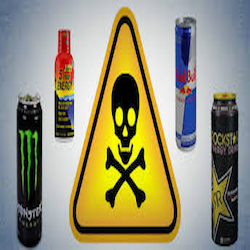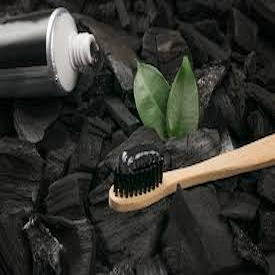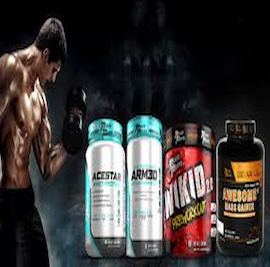Energy Drinks; How Bad They Are To Your Health

Energy drinks Dangers
Introduction
Energy drinks are a class of products, in liquid form, that usually contain caffeine. They may or may not have other added dietary supplements. Over the past 20 years, there has been a sharp rise in the use of energy drinks, especially among teenagers and young people. Energy drinks are heavily advertised as providing an energy boost to enhance both cognitive and physical performance. There isn’t much research to back up these assertions, though. The safety of energy drinks has really been called into doubt due to a number of negative health impacts that have been linked to them.
Energy Drinks, Targeting The Youth
Manufacturers now target young people instead of athletes as their target market. Energy drinks are heavily advertised in areas that are well-liked by teenagers and young adults. Boys make up two-thirds of the market for energy drinks, with customers aged 13 to 35 making up around two-thirds of the total.
Energy Drinks, Constituents
Energy drinks are made with an array of stimulants and energy boosters to offer the consumer an “energy boost.” Caffeine is the main ingredient in the majority of energy drinks. Typically, eight ounces of them contain 80–150 mg of caffeine, which is the same as five ounces of coffee or two 12-ounce cans of caffeinated soda.
While some companies offer versions that are artificially sweetened, the majority of products on the market include significant quantities of glucose. Taurine, methylxanthines, vitamin B, ginseng, guarana, yerba mate, acai, maltodextrin, inositol, carnitine, creatine, glucuronolactone, and ginkgo biloba are other components that are frequently utilized.
READ ALSO: The Best Bodybuilding Supplements
Cardiovascular Impacts
Numerous studies have demonstrated that consuming these drinks increases arterial blood pressure and heart rate. These results were linked to the energy drink’s ergogenic effects due to its high caffeine concentration. Furthermore, after consuming too many energy drinks, serious cardiac symptoms such as ventricular arrhythmias, ST-segment elevation, and QT prolongation have been reported.
In addition, two healthy boys, ages 14 and 16, have been documented to get atrial fibrillation following excessive energy drink consumption. (9) Recently, among males between the ages of 17 and 19, the usage of these drinks has been linked to myocardial infarction.
The discovery that energy drink consumption in young, healthy people lowers endothelial function and increases platelet activity through arachidonic acid-induced platelet aggregation lends credence to his claim. Recent studies have shown a connection between excessive energy drink use and major artery dissection, rupture, aneurysm development, and arterial dilatation.
Energy Drinks, Metabolic Effects
Energy drinks often have high sugar content, ranging from 21 to 34 grams per ounce. The primary sugar forms that make up this content are sucrose, glucose, and high fructose corn syrup. As a result, consuming a lot of such drinks may raise your chance of developing type 2 diabetes and obesity.
Acute caffeine use reduces insulin sensitivity. This accounts for the elevation in blood sugar levels observed in certain studies following energy drink consumption.
READ ALSO: Alcohol Consumption Hikes Cancer Risk
Dental Effects
The use of energy drinks was linked to a 2.4-fold increase in tooth erosion. Their low pH and high sugar content have been blamed for this. Furthermore, Pinto et al. discovered that by eliminating the tooth’s smear layer, energy drink use may cause cervical dentin hypersensitivity.
Psychological and Neurological Effects
When a person consumes 200 mg or more of caffeine, they often experience intoxication symptoms. Anxiety, sleeplessness, upset stomach, twitching of the muscles, restlessness, and spurts of exhaustion are among the symptoms. Caffeine use and aggressive behavior as well as conduct issues are strongly correlated. This is true according to research on teenagers between the ages of 15 and 16.
According to a number of publications, energy drinks may cause epileptic seizures and ischemic stroke. People who use more than 300 mg of coffee daily may have hallucinations. This might be explained by the high cortisol levels that occur after coffee consumption. Stress has a stronger physiological impact when cortisol is present, which makes people more likely to have hallucinations.
Renal Effects
It has been demonstrated that the caffeine in these drinks increases diuresis. Due to the risk of dehydration, they should be avoided when engaging in continuous activity in a hot climate. Research has indicated that a 1.5% dehydration level during extended activity might raise body temperature, heart rate, and perceived effort rate.
Rounding Up
Energy drinks may have a favorable, helpful impact on how well athletes exercise during a variety of sporting events. They may improve performance, but there is evidence of potential negative health effects, especially for children and teenagers. Energy drink use has a harmful impact on several bodily components.



